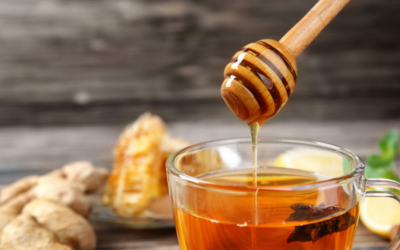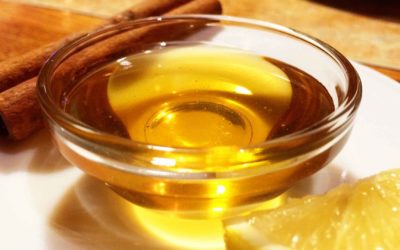Treat Eczema With Manuka Honey
What is Eczema?
Atopic Dermatitis (AD) otherwise termed as eczema, is a common inflammatory skin disease that has a 10-20% probability of occurring in children and 1-3% probability of occurring in adults. It is a non- contagious skin condition that causes dryness, itchiness, and irritation. This disease can be hereditary or non-hereditary. It may be hereditary for families with a history of allergies and asthma. Otherwise, the skin reaction may arise from contact with irritants such as soaps, detergents, and cosmetics etc. Eczema is most commonly found on the hands, elbows, arms, knees face. For more serious conditions, it may result in broken or bleeding skin patches.
Medicinal purposes of honey
Honey has been used in medicine for over 5000 years, as honey has antiseptic and antibacterial properties. It was also used in traditional Ayurvedic medicine for the remedy of indigestion and imbalances in the body. Manuka honey has anti-bacterial properties, as it helps to prevent a form of bacteria (that causes severe diarrhea and sickness) from settling in the body. Manuka honey may also help to prevent the resistance of bacteria to antibiotics. Honey has been traditionally used as folk remedy to treat respiratory conditions like cough, cold, asthma and skin conditions such as wounds and infections.
Manuka Honey may help to treat eczema
Manuka honey has been used in skincare, to increase hydration, moisturize and kill of bacteria, thus preventing pimples. Thus, it is probable that manuka honey can be used for eczema as well. According to Natalie Yin, an assistant professor from Columbia University Medical Centre, the anti-bacterial and anti-inflammatory properties of manuka honey may help to treat eczema. It can minimize swelling and redness. According to the National Cancer Institute, manuka honey’s major antibacterial properties come from the dicarbonyl compound, methylglyoxal (MG). The higher the concertation of MG, the stronger the antibiotic effect of honey is. Thus, manuka honey has been used for wound repair and could help eczema patches heal.
Another way that manuka honey is beneficial for eczema is because it acts as a moisturizer, which traps moisture in the skin and hydrating it. Hydration is important in treating eczema since one of the causes of eczema is dryness. At the same time, the honey barrier also prevents bacteria, allergens, and other irritants from entering the wound, according to Mayo clinic.
In 2017 a study was published in the Immunity, Inflammation and Disease, whereby 14 participants with eczema wounds on both sides of the body were tested to observe the effects manuka honey on their wounds. They were given manuka honey to be applied on one side of the body every evening for one week, while the other side was left untreated. At the end of the study, researchers saw that the wounds with manuka honey application improved and had less inflammation than the other side which was untreated. Hence, manuka honey does help in speeding up the healing process of eczema.
Limitations
So far, scientific research on the effects of honey for eczema have been limited and the sample size of the study is small. Hence, there needs to be more rigorous research in order to test the efficacy of honey on eczema wounds.
Directions for usage
Should you want to try out the effects of manuka honey on your eczema wounds, follow the steps below.
- In evening time, apply a thin layer of manuka honey over the affected eczema wound using clean hands.
- Dress the wound carefully with a gauze or bandage.
- The next morning, gently remove the bandage and clean the area well.
Allergic reactions to honey
Some people may be allergic to honey and may experience swelling, redness and itchiness after topical application of the manuka honey. Some other symptoms of allergy to honey include swelling, shortness of breath, dizziness, nausea or wheezing. If this happens, stop using the honey immediately.
Conclusion
Honey has been used in cosmetic products, skincare regimes and in the treatment of wounds. As such, it is a potential treatment for eczema. Moreover, manuka honey is a convenient topical treatment which can be easily found at home and hence is useful in times of need. However, more research needs to be done to attest to the effectiveness of honey for eczema treatment. As such, you should do a patch test on your eczema wounds to observe if any allergic reactions occur, and to test for its effectiveness before completely using it. Should you be in any doubt, do consult your doctor for medical attention.



